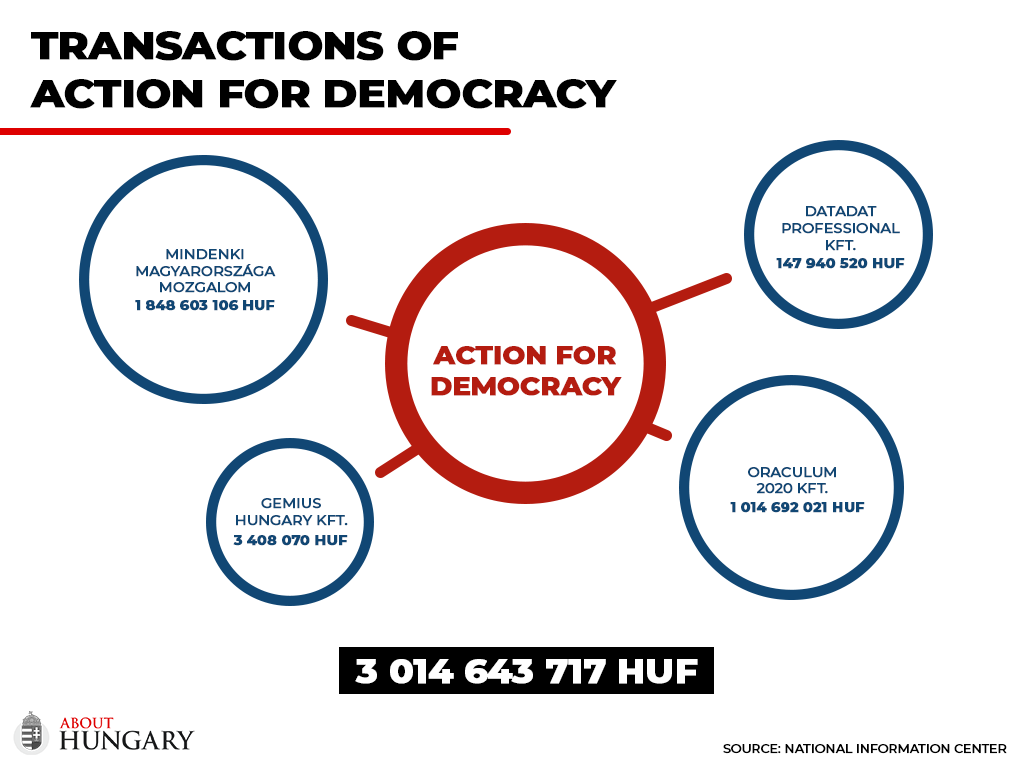To be clear: In Hungary, the law on the operation and financial management of political parties prohibits parties from accepting financial contributions from foreign organizations and non-Hungarian citizens, and also prohibits anonymous donations.
Such laws are not exclusive to Hungary, of course. Similar rules apply to the foreign financing of political parties in most Western democracies, including of course the United States, where the topic of foreign intervention in elections has been a major story.
To put the sum into perspective, the more than HUF 3 billion (EUR 7.3 million) received by the liberal-far-right coalition is nearly four times as much as Hungary’s state budget earmarked for campaign expenses, and this fact alone gravely violates Hungary’s sovereignty.
Among the many suspicious details of the story there’s the fact that even though Action for Democracy was founded on February 24, 2022, the first transfer – a whopping 684,672 USD – was funneled to Oraculum 2020 Kft., a firm closely associated with Ferenc Gyurcsány’s Democratic Coalition, already by March 1.
Considering that the report marks only the beginning of scrutiny into the financial dealings of opposition parties, one crucial question remains unanswered: Where did Action for Democracy’s more than 7 million euros come from? While signs already seem to be pointing in a certain direction, I’d warn anyone against jumping to premature conclusions at this point.
Ironically, Hungary hosted an army of election observers (including OSCE and a handful of other prominent organizations) for the vote on April 4, and they found the process in order and according to the rules. Seems they were looking in the wrong place the whole time. Had they been looking for breaches of election rules, they probably should have paid more attention to the suspicious finances of the colorful, liberal-far-right coalition…
Stay tuned for more on this story.

